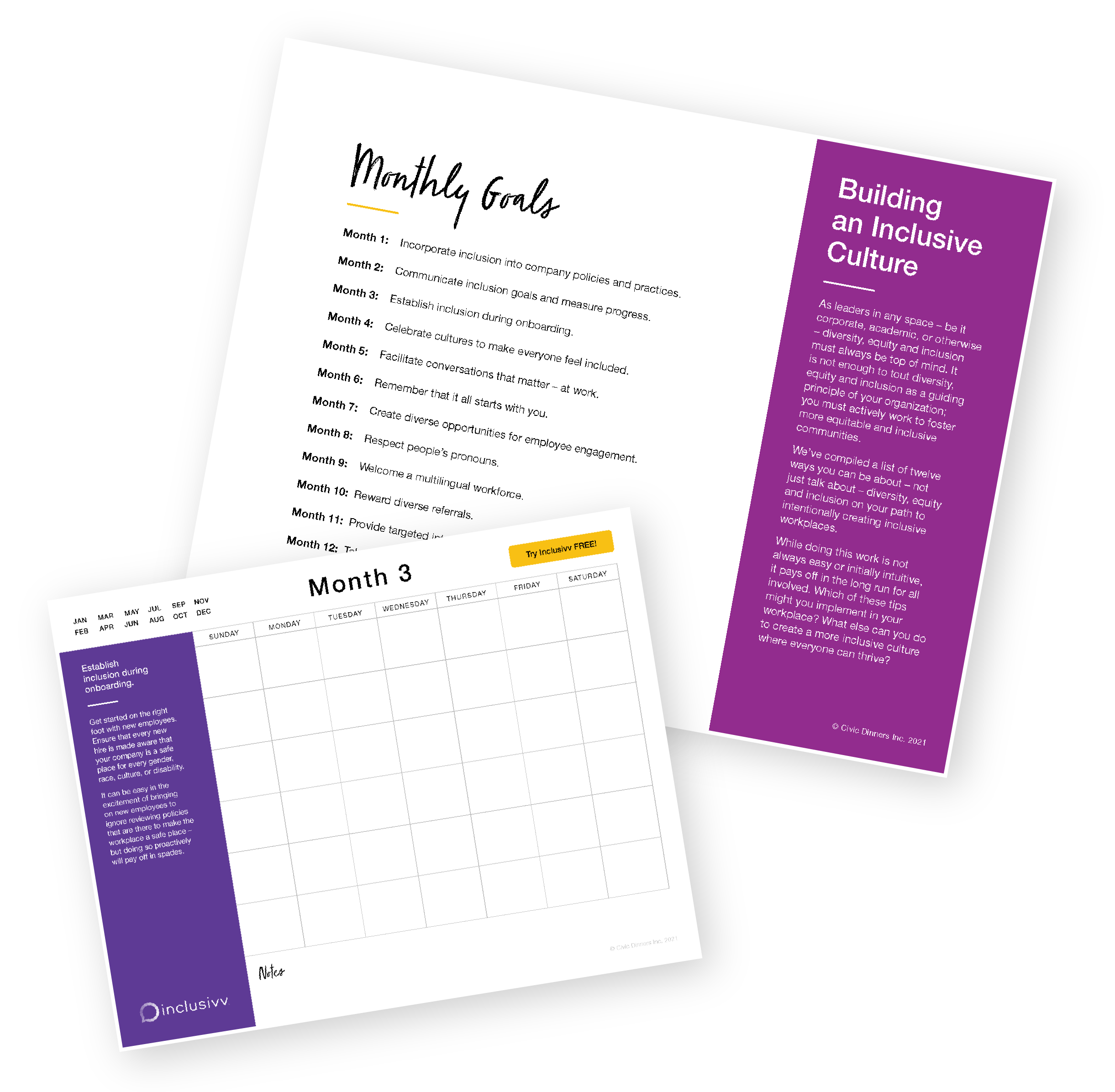Civility at work means more than being polite. It means listening to understand, showing empathy, respecting differences, and creating space for every voice. When civility is present, people feel safe to share ideas, collaborate, and solve problems together. When it's missing, teams break down, trust erodes, and progress stalls.
But how do you make civility part of your company’s culture across every team, every department, every location? How do you go beyond a single training to make civility a shared habit?
The answer starts with your people. Specifically, the people already inside your organization who are willing to lead by example and help others do the same.
Let’s explore what it takes to scale civility across your organization, why it matters, and how a Train the Trainer approach can help you build momentum that lasts.
Why Civility Needs to Be a Core Strategy
Civility is not about being overly nice or avoiding conflict. It is about creating a work environment where respect, trust, and care are the baseline. And the need is real.
A study by the Society for Human Resource Management (SHRM) found that toxic workplace culture cost companies in the U.S. an estimated $223 billion over five years due to turnover. According to research from Georgetown University, nearly 50% of employees who experienced workplace incivility intentionally reduced their work effort. Some stopped offering ideas, avoided collaboration, or even left the organization altogether.
On the other hand, organizations that foster respect and psychological safety see significant benefits. Teams communicate more openly, performance improves, and employee retention goes up.
It’s not just a culture win. It’s a business win.
The Problem with One-Time Trainings
A single training can spark awareness. But real culture change requires consistent action, reflection, and reinforcement.
Here’s what often happens:
-
A company holds a civility training or DEI session.
-
Employees attend and appreciate the effort.
-
Then… nothing changes. Old patterns return. People are unsure how to apply what they learned.
Without follow-up, repetition, or trusted champions to guide the conversation, the momentum fades.
That’s why companies need more than a one-time fix. They need internal facilitators who can lead with consistency and compassion.
Addressing Bullying in a California Hospital
Consider the case of a California hospital's Emergency Department, which was grappling with a culture of bullying and gossip among nurses. This toxic environment not only affected staff morale but also had the potential to compromise patient care.
Recognizing the severity of the issue, the hospital's leadership collaborated with Civility Partners to implement a comprehensive training program aimed at restoring a respectful workplace culture. The initiative included:
-
Separate Training for Managers and Employees: Tailored sessions addressed the unique challenges faced by each group, focusing on effective communication and conflict resolution skills.
-
Establishment of Ground Rules: Employees collectively developed a set of behavioral guidelines to hold themselves and each other accountable.
-
Personal Action Plans: Each staff member created a plan outlining steps to improve their own communication and behavior, which was then reviewed with their manager.
This structured approach led to a noticeable improvement in the department's work environment. Staff reported feeling more empowered to address issues directly, reducing the reliance on management to mediate conflicts. The initiative not only enhanced teamwork but also contributed to a safer and more supportive setting for both employees and patients.
5 Steps to Scale Civility Across Your Organization
If you're ready to move from one-time efforts to lasting change, here are five key steps you can take to scale civility in your organization.
1. Get Leadership Buy-In and Set the Tone
Leaders must model civil behavior and explain why it matters. This includes sharing their own learning journey, admitting mistakes, and encouraging others to do the same.
Invite leaders to speak openly about the importance of respect, trust, and connection. When people see leaders prioritize civility, they are more likely to follow.
2. Define What Civility Looks Like at Work
Every workplace is different. Define specific behaviors that reflect civility in your culture. For example:
-
Listening without interrupting
-
Asking curious questions rather than making assumptions
-
Addressing conflict directly and respectfully
-
Giving feedback with care
-
Acknowledging contributions and diverse perspectives
Make these behaviors part of your company values, performance reviews, and daily team interactions.
3. Train Internal Facilitators and Civility Champions
This is where the magic happens. When employees learn how to guide conversations and model civil behavior, they become powerful agents of change.
A Train the Trainer program equips your internal team with the skills, tools, and confidence to:
-
Lead effective civility workshops
-
Create brave spaces where people feel heard
-
Manage strong emotions and guide constructive dialogue
-
Encourage positive habits that build trust over time
These facilitators don’t need to be executives or HR professionals. In fact, the best civility champions are often team leads, managers, or employees who are naturally trusted and respected by their peers.
When trained well, they can lead workshops, host team conversations, and support others through moments of tension or growth.
4. Integrate Civility Into the Employee Experience
Culture is shaped by what happens every day. Look for opportunities to weave civility into existing systems and moments.
Add civility topics to:
-
New hire orientation
-
Monthly team check-ins
-
Leadership training programs
-
All-staff meetings
-
Internal newsletters or recognition programs
You can also create spaces for reflection, like a monthly “Civility Circle” where teams discuss challenges and celebrate progress.
The goal is to make civility feel natural, not separate from the work.
5. Track Progress and Share Stories
Measure the impact of your efforts so you can learn and adapt. Metrics might include:
-
Employee engagement survey results
-
Reduction in HR complaints or team conflicts
-
Feedback from workshop participants
-
Stories of positive behavior change
Don’t just focus on numbers. Celebrate moments of kindness, empathy, and courageous conversation. Share these stories widely. They help remind your team that civility is not just an abstract value. It’s something real and lived every day.
Why a Train the Trainer Approach Works
Scaling civility requires more than content. It requires connection.
When your own people lead the charge, they bring credibility, care, and context. They know the culture, understand the dynamics, and can tailor the message to fit.
The Train the Trainer model also allows your organization to:
-
Reach more people faster without depending on external consultants
-
Build a culture of shared ownership and accountability
-
Create long-term change through consistent reinforcement
-
Adapt the message over time as your organization grows
Instead of waiting for someone else to fix culture, you equip your people to build it together.
Ready to Train Civility Champions in Your Workplace?
Our Workplace Civility: Train the Trainer Program is designed to help your team lead from within. We provide everything your internal facilitators need, including:
-
A step-by-step facilitator guide
-
Customizable training decks and materials
-
Coaching and support for confident facilitation
-
Real-world conversation scenarios and tools for managing strong emotions
Whether you're a team of 50 or 5,000, we’ll help you build a movement of respect, trust, and connection from the inside out.
We offer two versions of the program to meet you where you are:
-
The Full Version is ideal for organizations ready to roll out a complete civility initiative with deep support and hands-on training.
-
The Lite Version is perfect if you're looking for a starter option with essential tools and guidance to empower facilitators with less time or fewer resources.
When you empower your people to lead, you create a ripple effect that lasts long after the training ends.
Learn more about our Train the Trainer Program or reach out for a custom consultation.
Because civility isn’t a single act. It’s a shared practice. And it starts with you.



